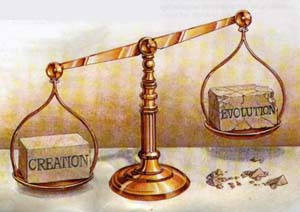(Episode 5: “The True Me”)

(Click through for picture source)
The question we pose in reference to an unknown theologian is this: “Who is the true me? Am I who others say I am, or am I who I think I am?”
What seems to be a simple question is in fact quite complicated. We can rephrase the question as such: Is it the true me, the me judged by my actions or is it rather the thoughts I have and carry that define me?
Again, the question seems to be just as complex, partly because something within us wants to say well, “both”. It may also seem complex because of the problem with unity. What we mean by “unity” (in reference to Iskra Fileva) is the idea that we are what we seem, just as we unify others as what they seem to be as what they might always be. An honest person “should be” honest at home, or a shy person “would always be” shy wherever he goes.
How often do we think that way, and how often are we wrong?
Well, quite a lot.
The problem is thus- that we cannot clearly define our character or even the existence of our character because of the problem of time frame and unity. We have our past, our present, and future. Which section defines us, and if all three do, then how can we speak for the present which is in the making and the future that has not yet arrived? Further yet, with the issue of “unity”- if people are not what they seem, then in what angle are we to see them at all?
We point that arrow not to others but back at ourselves. When we find ourselves reflecting a part of us we do not recognize, or even if we do, a part we’d like to keep hidden- it bugs us and we wish to be liberated from it. A question of identity, “who am I?” is constantly asked throughout our lives. There are also times when the person we know we “can be” is not what others “believe we can”, and it’s despairing when they do the task of bringing you down from your true potentials.
How do we deal with these situations? When others have done a good job in bringing us down we soon begin to believe that they are right. We fight with beliefs and notions sometimes to prove ourselves, but what can bring peace to the whole matter?
The answer to the primary question is this (answered by the unknown theologian): We are truly ourselves when we are who we were supposed to be, and who we were supposed to be was the person God intended.
Simply speaking, we are who God says we are and we are our true selves before Him. The question goes on. Who does God intend “me” to be? Who am I supposed to be? And what do I look like to God?
For the short time we had, we cannot possibly answer all those questions- let alone give you any answers at all! However, let’s just concentrate on this: The Good God.
God is truly the only Being who can provide forgiveness for your past (all of it!), understand and help your shortcomings in the present, and give you hope for your future that may be daunting.
When you are in conflict with your identity or between the prejudices and the belief that you are more than the limitations around you, the only way to elevate yourself is to see the situation in God’s-eye view! How does God see me, and what does He want to see? Am I that person before Him?
Now you may ask, that is not my “true self” if I must ask if I am not enough in a way that sounds like I have to “change” myself for this Person!
However, going back to Iskra Fileva’s article in the NYTIMES, character (should not be) a state of affairs, rather a promise one makes with an intention to fulfill it with whatever it takes to live up to it.
Because our natural being is always in fluctuation, and in fact unity in character is merely an illusion- the compromise we can make in understanding character at all is this: there is no “honest” person born honest and will die completely honest. It is in fact an “ACHIEVEMENT” if s/he can but if not, it matters only that s/he wills to be an honest person until s/he dies and lives up to it.
The futuristic sense of our identity is hopeful. We can be who we will to be! Who we were and who we may be now can speak less of ourselves or rather, become a fuel to charge us into the direction we want to go- well, for us, the direction God wants us to go! The judgments of others the limitations I have, these can be broken by my will to let it break and to strive beyond it.
Our message for you until our next week is this. “LIVE UP TO IT!” and don’t let things chain you down from where God wants you to go. Well, where would the Good God want to lead you? To Him, and to a place always much better than now. Maybe you are there now, but because we should always live “Heaven as on Earth”, we can begin to help our communities and those around us.
LIVE it up for GOD!
——————————————————————————-
Article(s) mentioned:
“Character and Its Discontents” http://opinionator.blogs.nytimes.com/2012/03/25/character-and-its-discontents/?scp=5&sq=character&st=Search
“Heaven Can’t Wait”
http://www.time.com/time/magazine/article/0,9171,2111227,00.html
TIME 100 LIST

